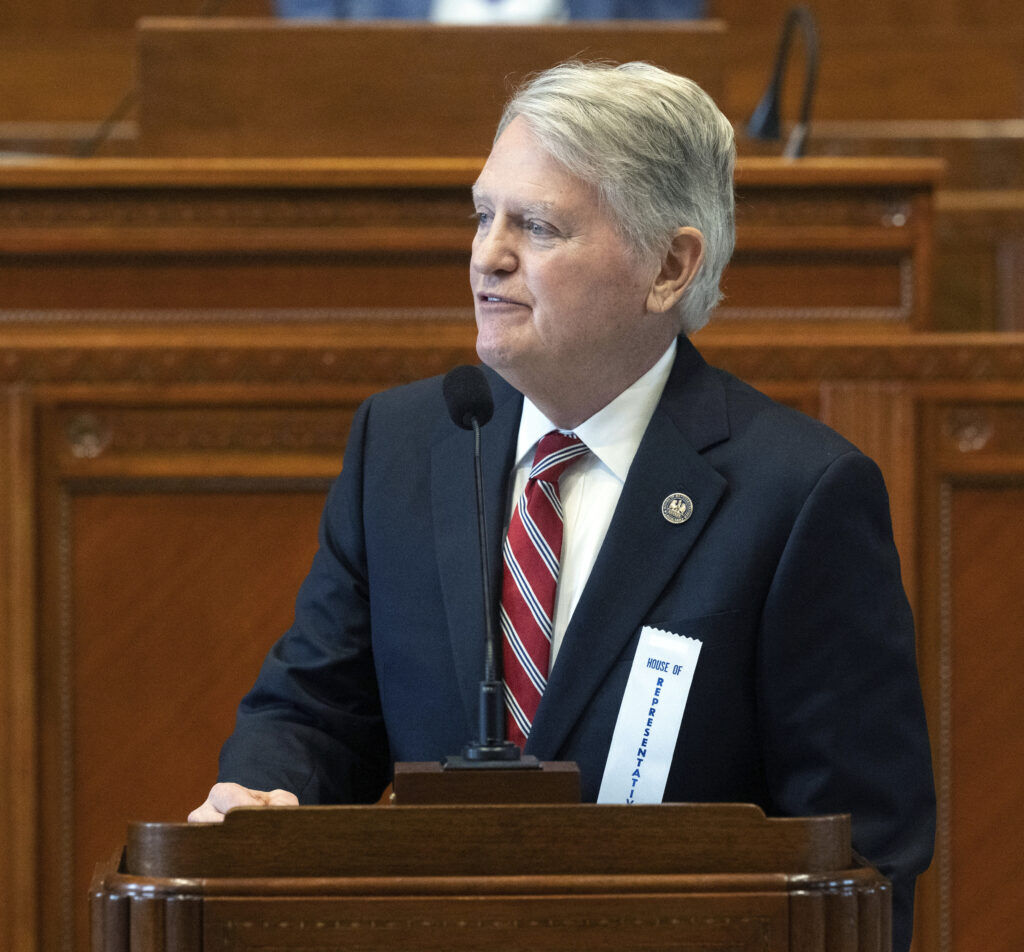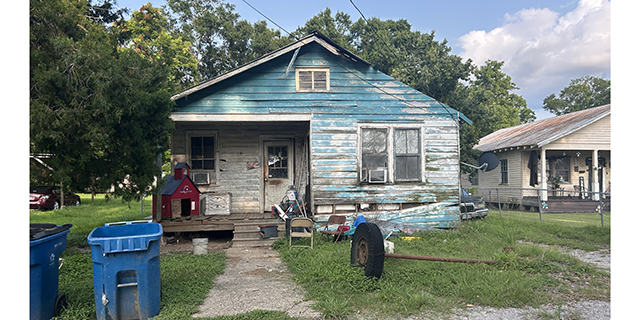Prison sentences for carjacking, fentanyl could grow longer in Louisiana
Published 11:14 am Friday, February 23, 2024

- House Speaker Pro Tempore Michael Johnson is pushing a bill to increase prison sentences for illegal use of a weapon.
The Louisiana House of Representatives voted overwhelmingly Thursday to lengthen prison sentences for a handful of crimes at the urging of Gov. Jeff Landry, who has made public safety a top priority for his first year in office.
Supporters of the legislation said stiffer penalties will make Louisiana safer, but the measures could also cost the state millions of dollars each year, based on independent fiscal analyses from legislative staff.
The House approved three bills that could increase prison sentences for hundreds of people convicted of crimes involving weapons, carjacking and fentanyl. In some cases, they would double or triple the time in prison for offenders.
Each extra year a person spends in prison costs the state government $9,632 or $39,372, depending on the type of facility is used. Under some scenarios, imprisoning one person for 10 more years for the same crime would increase the price tag for his incarceration by $390,000, according to the fiscal analysis.
Backers of the legislation said the price of the measures isn’t relevant when public safety is at risk.
“I’m not concerned with the cost because I care about the cost to victims who we see on the nightly news all the time,” said Rep. Laurie Schlegel, R-Metairie, who sponsored two of the bills approved Thursday. “If people stop carjacking, there will be no cost to our state.”
Louisiana has already tried to use long prison sentences as a crime prevention tool in the past, with little success.
The state consistently ratcheted up criminal penalties throughout the 1980s and 1990s, leading Louisiana to have the highest incarceration in the world. Yet Louisiana remains one of the most violent places in America and consistently has one of the nation’s highest homicide rates.
More prison time for holiday gun celebrations
Louisiana House members voted 84-19 in favor of House Bill 5 to reclassify illegal use of weapons or “dangerous instrumentalities” as crimes of violence and automatically increase its penalties.
The sponsor of the legislation, House Speaker Pro Tempore Mike Johnson, R-Pineville, said illegal use of weapons includes shooting guns off into the sky in celebration of July 4 and New Year’s Eve. Incarceration for such a crime could grow from an average of three to 13 years in prison if the bill is approved, according to a legislative fiscal analysis.
“We’ve had issues particularly in urban cities where it almost sounds like you are living in a war zone,” Johnson said.
Fiscal analysts also suggest Johson’s legislation could be expensive. It could cost an extra $11.5 million per year to account for the nearly 300 people on average who receive this charge, according to recent estimates.
More prison time for carjacking
The House voted 89-15 in favor of House Bill 7, sponsored by Schlegel, that increases minimum penalties from two to five years for carjacking and from 10 years to 20 years for a carjacking that causes serious bodily injury.
The maximum penalty for carjacking with serious bodily injury would also increase from 20 to 30 years, under the legislation.
Fiscal analysts said approximately 22 people have entered the prison system on carjacking convictions annually over the past three years. They serve an average sentence of seven years.
The analysts were unable to calculate how much the legislation would grow state expenses, but said it was an “indeterminable increase” overall.
More prison time for fentanyl distribution
The House voted 92-13 to increase penalties for fentanyl if the drug is packaged in a way that would appeal to children.
House Bill 8, sponsored by Schlegel, would give people convicted of marketing fentanyl products in child-friendly packaging a prison sentence of 25 to 99 years. Under current law, people convicted of holding a small amount of fentanyl face a minimum five years in prison.
Child-friendly packaging includes fentanyl products designed to look like candy, animals, people, vehicles, characters or a food product that is attractive to minors, according to the legislation.
Democrats questioned whether the bill would unintentionally entrap high school students who might think they are handling a marijuana product but not know it contains fentanyl. Others said the targeted packaging isn’t always designed to appeal to children.
Fiscal analysts were unable to determine the monetary impact of the legislation.





